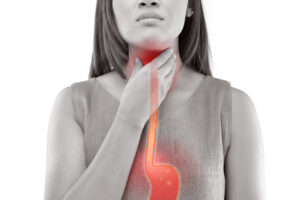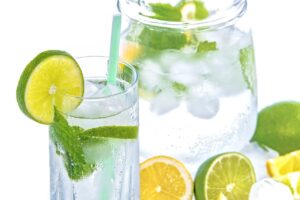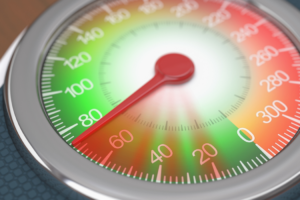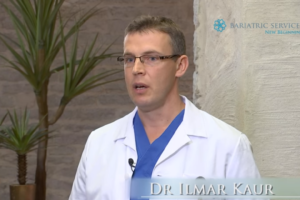Hair loss can occur with any major weight loss, including after weight-loss/ bariatric surgery.
This is firstly due to the effect of the physiological stress associated with weight loss on the hair growth
cycle.
The hair growth cycle consists of three phases:
The active phase (anagen), the transitional phase (catagen), and the resting phase (telogen) of hair growth. Normally, about 10% of our hair is in the resting phase at any one time. The physiological stress placed on the body by rapid weight loss after surgery causes more hair to enter the resting phase. The resting phase lasts for 3+ months on average, and at the end of this phase, major hair loss occurs, usually at 3–6 months after surgery.
Another reason is nutrient deficiency. Smaller portions of food mean lower intake of macronutrients (proteins, fats, carbohydrates). When the supply of nutrients is limited, nutrients are first distributed to vital organs in the body, leaving hair, which primarily serves a cosmetic function, deprived of nutrients.
Micronutrients associated with hair loss include iron, zinc, biotin, folate, vitamin B12, and essential fatty acids. Micronutrient (vitamins and minerals) deficiencies are less common when hospital instructions for vitamin replacement therapy are followed.
In addition to the above, hair loss can also be caused by hypothyroidism and genetic factors. Hair loss rarely lasts longer than 6 months, and your hair will grow back within 3 to 6 months. In addition, you will never lose all of your hair. Unfortunately, there is not much you can do about the hair loss. What is needed is just time and patience and to ensure a sufficient intake of nutrients.
The following suggestions can help reduce hair loss after bariatric surgery:
- Consume at least 60 grams of protein per day.
- Take vitamins daily according to our recommendations. Make sure your dietary supplements contain iron (50–100 mg per day) and zinc (15–40 mg per day).
- Eat fatty fish, nuts, and seeds, or take an omega-3 supplement regularly.
- Avoid hairstyles that pull on your hair too hard, as this can intensify hair loss.
When should you worry about hair loss?
- If your hair loss has lasted for more than 1 year
- If your hair loss started later than 6 months after surgery
- If you are finding it difficult to eat sufficient quantities of varied food
- If you have not followed the recommendations for vitamin replacement therapy
- If your blood tests indicate an iron, zinc, or protein deficiency
- If you have lost weight significantly faster than expected
- If you have symptoms indicative of other possible deficiencies
Did you know?
To transport nutrients, the hair root uses sebum secreted by sebaceous glands. Sebum acts as a natural conditioner for hair. Nutrients from the bloodstream mix with the sebum, and the sebum delivers them to the hair papilla. Thus, sebum is essential for supplying hair with nutrients, and it is not recommended to wash your hair daily.
What kind of nutrients does hair need?
Above all, our hair needs water, protein, fatty acids, vitamins, and minerals.
Water
Water is essential for all cells in the body, including hair follicles. Water makes up 10–15% of our hair. If our body is not getting enough water, the water that is available is first delivered to our vital organs, while our hair has to do without. This results in the hair becoming dry and causes hair breakage, which eventually leads to hair loss. The minimum amount of water you should be consuming at 1–2 weeks after surgery is 1 litre per day, rising to 1.2–1.5 litres per day from the third week onwards.
Protein
Protein is an essential building material for the body, including hair. Protein deficiency can lead to hair loss. The importance of adequate protein intake is stressed in all guidelines for weight-loss surgery patients. The minimum recommended protein intake is 60–80 g per day. If you have switched to a regular diet, you can calculate your personal required protein intake as follows: minimum of 0.8 grams per 1 kg of body weight. The recommended level is 1 g per 1 kg of body weight.
Fatty acids
The essential fatty acids omega-3 and omega-6 are vital for the health of the cell membranes of the hair roots. For example, one study reported reduced hair loss in women who took a dietary supplement containing omega-3 and omega-6 fatty acids and antioxidants had.
Vitamins and minerals
VITAMIN A is involved in the production of sebum, protects follicles, helps accelerate hair growth, and helps achieve thicker hair.
VITAMIN C is a potent antioxidant. It helps protect the hair follicles from free radicals. It is also involved in collagen production. Collagen strengthens and protects hair against breakage. It also boosts the absorption of iron – iron deficiency anaemia is a contributor to hair loss.
VITAMIN E is also an antioxidant. It neutralises free radicals, protects the skin (including the scalp) from oxidative stress, and promotes hair growth.
VITAMIN D Vitamin D3 deficiency is associated with hair loss. This vitamin can help produce new follicles. It plays a role in the functioning of the sebaceous glands and related nutrient deficiencies.
FOLIC ACID is responsible for the growth of new cells. It promotes the growth of new hair.
IRON transports haemoglobin to tissues. Iron deficiency anaemia results in hair loss.
ZINC plays a key role in the growth and repair of hair tissues, helping to keep the sebaceous glands that surround follicles functioning properly. Zinc deficiency causes hair to become dry and fall out. So too does too much zinc.
Our hair also needs CALCIUM and MAGNESIUM. As well as CARBOHYDRATES, which act as an adhesive in the hair, binding protein, which in turn binds water. Hair loss and damage can be caused by a deficiency of any nutrient. That is why it is important to eat a varied diet and follow the vitamin replacement therapy plan.
References:
Almohanna H, et al.,The Role of Vitamins and Minerals in Hair Loss: A Review. Dermatol Ther (Heidelb). (2019) 9(1): 51–70.
Guo E, et al. Diet and hair loss: effects of nutrient deficiency and supplement use Dermatol Pract Concept. (2017) 7(1): 1–10.
Le Floc’h C, et al. Effect of a nutritional supplement on hair loss in women. (2015) J Cosmet Dermatol 2015 Mar;14(1):76-82
Trüeb R. Oxidative stress in ageing of hair. (2009) Int J Trichology. 1(1):6-14
Trüeb R. The impact of oxidative stress on hair. (2015) Int J Cosmet Sci. 37, 2:25-30
Ablon G. A 3-month, randomized, double-blind, placebo-controlled study evaluating the ability of an extra-strength marine protein supplement to promote hair growth and decrease shedding in women with self-perceived thinning hair. (2015) https://doi.org/10.1155/2015/841570
https://juuksur.innove.ee/chapter2/17.php (27.12.2020)









